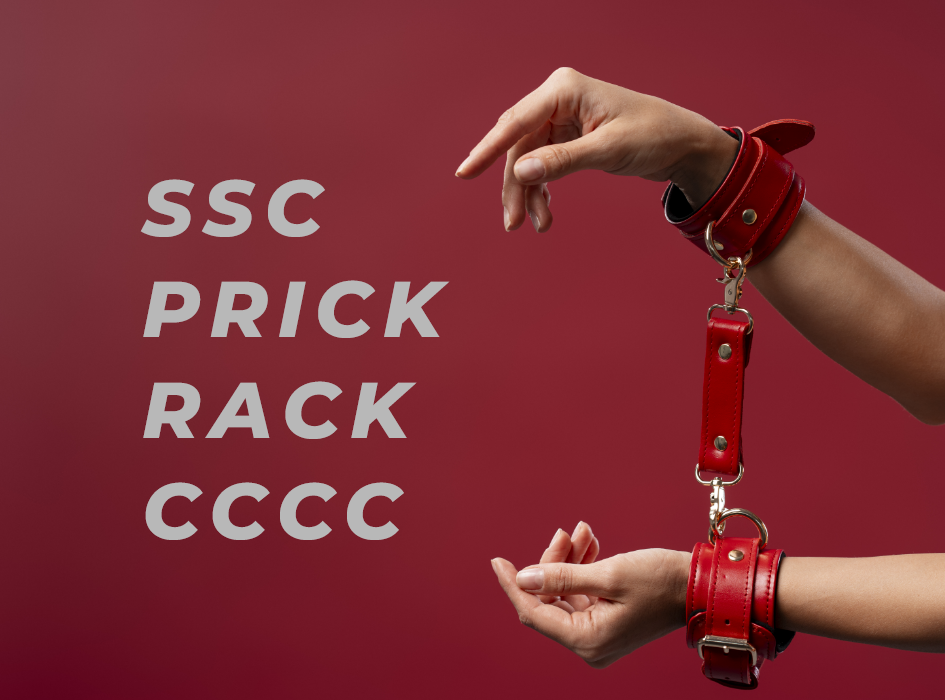Words are powerful tools, especially in the bedroom. For some people, the idea of being humiliated or degraded can be a huge turn-on, but it’s not as simple as hurling insults. Humiliation play, also called consensual denigration, is all about trust, communication, and mutual consent. This guide will break down what humiliation play is, why people enjoy it, and how to incorporate it safely into your sex life.
What Is Humiliation Play?
Humiliation play is a form of kink where one partner finds arousal or excitement in being degraded, insulted, or embarrassed. It could involve verbal taunts, role-playing, or even specific scenarios that emphasize vulnerability. The key is that it’s all consensual, pre-discussed, and something both partners agree to explore.
This isn’t about actually hurting someone emotionally. Instead, it’s about creating a dynamic where words or actions trigger specific feelings that lead to arousal. For the person being humiliated, it’s not about the insult itself—it’s about the context, trust, and the role-play aspect of the situation.
Positive vs. Negative Humiliation
Humiliation play can vary from light teasing to more intense scenes. It’s important to understand the difference between positive and negative humiliation:
-
Positive Humiliation: This type reinforces connection and excitement without causing harm. It’s often playful and arousing for both partners.
- Example: "You’re such a dirty little thing, aren’t you? But I love it."
-
Negative Humiliation: This crosses the line and causes genuine emotional harm or discomfort. If someone feels hurt, ashamed, or degraded beyond the agreed-upon boundaries, it’s no longer consensual and should stop immediately.
Types of Humiliation Scenes and How to Use Them
There are many ways to explore humiliation play, and the key is to find what excites you and your partner. Here are some popular scenarios with examples of what to say:
1. Slut Humiliation
This involves using terms like "slut" or "whore" to emphasize sexual submission. It’s playful and often focuses on teasing the partner’s desire or sexual appetite.
What to say:
- "Get over here, slut."
- "You’re nothing but a slut, aren’t you?"
- "Sluts like you are only good for one thing."
2. Feminization
Feminization involves role-playing where a partner (often male) is referred to or dressed as feminine. This taps into ideas of vulnerability or submission.
What to say:
- "Such a pretty little lady."
- "What a fuckable tramp you are."
- "Girls should only speak when spoken to."
3. Small Penis Humiliation
This focuses on playful teasing about size. It’s important to ensure that this is something your partner is comfortable with and finds exciting.
What to say:
- "Who’d want such a tiny dick?"
- "Get that little worm away from me."
- "You call that sorry thing a penis?"
4. Infantilization
Infantilization involves role-playing as someone younger, often with a focus on vulnerability. It’s crucial to remember that this is about consenting adults and is not the same as pedophilia.
What to say:
- "You’re a filthy, filthy baby."
- "Such a pitiful little thing."
- "Do you expect me to clean up this mess?"
5. Denigration
This is general verbal degradation, often emphasizing submission or worthlessness in a playful, consensual way.
What to say:
- "You’re nothing but an awful little creature."
- "Pathetic, you should be ashamed of yourself."
- "What an amazingly hungry beast."
Why Are People Into Humiliation Play?
Humiliation play works because it taps into psychological triggers that excite certain individuals. Here’s why people enjoy it:
- Power Exchange: Being humiliated can make the submissive feel more vulnerable and connected to the dominant partner.
- Emotional Release: For some, being degraded in a safe space is cathartic and allows them to explore emotions they don’t usually express.
- Taboo Excitement: Humiliation often involves “forbidden” words or scenarios, which can make it thrilling.
- Validation: Ironically, many people feel validated during humiliation play because it’s a form of attention and intimacy, even if it’s framed as teasing.
Aftercare for Humiliation Play
Aftercare is crucial after humiliation scenes because they can stir up complex emotions. Here’s how to provide support:
-
Reassurance: Remind your partner that everything was role-play and that you value and respect them.
- Example: "You were amazing, and I love how open you are with me."
-
Physical Comfort: Offer cuddles, a warm drink, or just hold each other to reconnect.
-
Talk It Out: Discuss how the scene went. Did they enjoy it? Was anything too much? This helps improve future experiences.
The Bottom Line
Humiliation play can be an incredibly exciting and intimate experience if approached with care, communication, and consent. It’s not about tearing each other down—it’s about building trust, exploring desires, and having fun.
If you and your partner want to try humiliation play, start small, communicate often, and always prioritize each other’s emotional well-being. With the right approach, it can add a thrilling layer to your intimacy while keeping the connection strong.
Related posts
-
Acronyms of BDSM : A Look at SSC, RACK, PRICK and CCCC
BDSM acronyms have emerged and been debated over a time as away to protect BDSM......
-
Is It Common to Lose an Erection When Wearing a Condom?
Have you ever been ready to go, but lost your erection when putting on a......
-
Is the Idea of a Cuckquean Rooted in Myth or Real-life Practices?
A cuckquean is a woman whose husband is unfaithful, often with her knowledge and sometimes......


